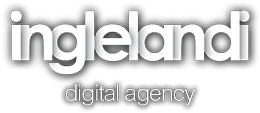In today’s travel landscape, digital marketing for hotels is not just an advantage; it’s a necessity. Modern travelers search, compare, and book almost entirely online, relying on reviews, visuals, and the overall brand experience a hotel conveys. To stand out, your property needs a strong, strategic digital presence that inspires trust and drives action.
In this article, we’ll explore how digital marketing helps hotels increase bookings, strengthen their reputation, and build long-term relationships with guests.
Why Digital Marketing for Hotels Matters
To begin with, digital marketing for hotels allows you to reach travelers at the exact moment they’re searching for a place to stay. It helps your hotel or resort appear where it truly matters—on Google, social media, and travel platforms. Without a clear strategy, even the most beautiful hotel can go unnoticed. But with the right digital approach, you can turn website visitors into real guests.
Key Components of a Successful Hotel Marketing Strategy
1. SEO and an Optimized Website with UX/UI
Before investing in advertising, every hotel needs a well-built website—both technically and visually. A fast, elegant, and mobile-friendly site enhances user experience and directly increases bookings. Good UX/UI design affects visitor behavior: smooth navigation, clear booking options, and easy-to-find information build trust and encourage conversions. Combined with strong SEO, your hotel’s website can appear in top Google results when travelers search for “hotel in Chania” or “resort in Crete.”
Don’t forget Google My Business (GMB), a key tool for local visibility, maps, and reviews. A complete GMB profile with photos, accurate descriptions, operating hours, and prompt responses to guest reviews boosts your credibility and helps travelers find and book your property directly.
Learn more: SEO for Hotels: How to Get More Direct Bookings
2. Paid Ads (Google Ads, Meta Ads & TikTok Ads)
Once your website is ready, targeted ads become the foundation of every effective digital marketing strategy for hotels. Through campaigns on Google, Meta (Facebook & Instagram), and TikTok, you can reach potential guests while they’re planning their trips—based on country, interests, or season.
Success doesn’t depend only on budget; it comes from accurate targeting, compelling content, and consistency with the experience your website delivers. When these elements work together, they guide travelers seamlessly from inspiration to booking.
3. Social Media Marketing & Content Creation
Your social media pages are the most powerful “showcase” of your hotel. Through photos, reels, stories, and videos, you can tell your brand’s story, convey the atmosphere of your destination, and inspire travelers to book. Consistency and authenticity are crucial. Real, experience-driven content helps users feel the essence of your property—its views, warmth, and hospitality—turning interest into desire and desire into reservations.
4. Email Marketing & Early Booking Offers
Email marketing remains one of the most effective tools in digital marketing for hotels, especially for early-bird promotions, repeat guests, and personalized offers. Automated emails allow you to share new packages, discounts, or seasonal events directly with your audience.
Through segmentation, you can target the right message to the right guest at the right time, making communication more personal and boosting the likelihood of repeat bookings.
5. Online Reputation & Reviews
Your hotel’s online image directly influences booking decisions. Managing your digital reputation means actively monitoring and responding to reviews (both positive and negative). Using platforms like Google My Business, TripAdvisor, and Booking.com, you can show that you value guest feedback and turn your reputation into a competitive advantage. A well-managed reputation doesn’t just protect your brand—it builds loyalty and trust.
How Inglelandi Creates Digital Strategies That Deliver Results
At Inglelandi Digital Agency, we design complete, data-driven plans for digital marketing for hotels that combine SEO, Google & Meta Ads, email marketing, content creation, and website optimization.
Every strategy is tailored to your property’s unique factors: location, target audience, and seasonality. Our goal is to increase conversions and reduce dependency on OTAs like Booking.com by turning your website into your most profitable booking channel.
Explore our digital marketing services HERE.
Conclusion
To conclude, digital marketing for hotels isn’t just an advertising practice—it’s a growth strategy. With the right mix of SEO, targeted campaigns, and high-quality content, you can increase direct bookings, enhance your brand’s reputation, and create guest experiences that truly stand out. At Inglelandi, we help hotels across Crete and Greece build powerful digital identities that attract, engage, and convert travelers.
If you want your online presence to work for you, contact us today. Let’s build the strategy that fills your rooms and grows your brand.
Discover our Social Media HERE!
Want more marketing insights? Click HERE to explore all our blog posts!
Frequently Asked Questions (FAQs)
1. What does digital marketing for hotels include?
It includes SEO, Google & Meta Ads, social media management, email marketing, and reputation management—all designed to boost direct bookings and visibility.
2. How often should hotel digital marketing be done?
Consistency is key. Successful digital marketing for hotels requires ongoing monitoring, optimization, and seasonal adjustments to stay ahead of trends and traveler behavior.
3. How much does digital marketing for hotels cost?
It depends on your property’s size and goals. At Inglelandi, we offer flexible packages tailored to your business needs and budget.
4. Why choose Inglelandi?
Because we combine expertise, creativity, and strategy. We don’t just create content—we craft digital experiences that transform engagement into bookings.
